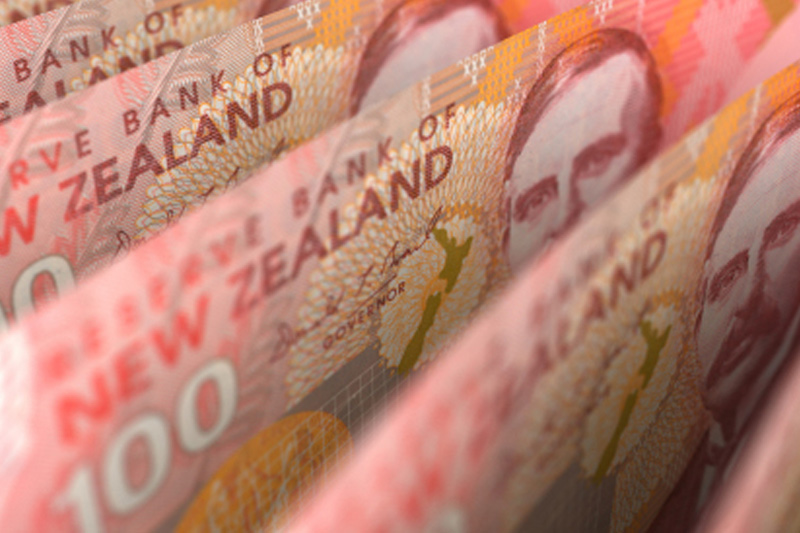Investing.com - The New Zealand dollar rose against its U.S. counterpart on Thursday, but gains were expected to be limited as investors remained cautious after the European Central Bank said it would no longer accept Greek government bonds from banks seeking funding.
NZD/USD hit 0.7398 during early European trade, the session high; the pair subsequently consolidated at 0.7386, rising 0.25%.
The pair was likely to find support at 0.7287, Wednesday's low and resistance at 0.7454, Wednesday's high.
Markets were still jittery after the ECB said on Wednesday that it would no longer accept Greek bonds as collateral for lending, shifting the burden on to Greece’s central bank to provide additional liquidity for its lenders and increasing pressure on Athens.
Greece’s government is seeking debt relief on its current €240 billion bailout, which has fuelled fears over a clash with its creditors that could bring about its eventual exit from the euro zone.
The New Zealand dollar had found support on Wednesday after Reserve Bank of New Zealand Governor Graeme Wheeler said that interest rates will remain on hold for a prolonged period of time because of the economy's strength and low inflation.
The kiwi was lower against the Australian dollar, with AUD/NZD edging up 0.19% to 1.0540.
Also Thursday, the Australian Bureau of Statistics reported that retail sales rose 0.2% in December, disappointing expectations for an increase of 0.4%, after a 0.1% uptick the previous month.
A separate report showed that Australia's new home sales declined 1.9% in December, after a 2.2% rise in November.
Later in the day, the U.S. was to produce its weekly report on initial jobless claims in addition to data on the trade balance.
